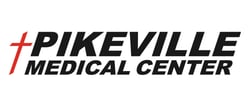Independent Hospitals
We improve care, drive operational efficiency, and reduce drug costs by 8-15% with our inpatient pharmacy services. CPS also establishes and runs accredited specialty pharmacies that can generate millions in new revenue and improve patient outcomes.
Specialized Health Facilities
For behavioral health hospitals, pediatric hospitals, and federally qualified health centers (FQHCs), we drive efficient operations, lend staffing support, and reduce medication costs all while improving patient care.
Health Systems & IDNs
For larger multi-site health systems, CPS offers the technology support and regulatory expertise needed to drive performance across all your sites. We also tailor specialty pharmacy solutions that drives your organization to improve patient care and achieve your strategic goals
Patients
Patients are always at the center of everything we do. Our processes and programs always put patients first and ensure that our services deliver real outcomes for our partners.


